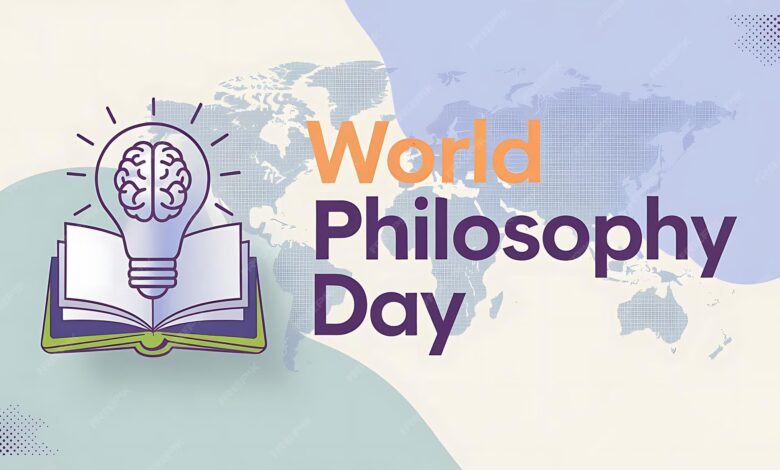World Philosophy Day: Celebrating the Power of Critical Thought

World Philosophy Day, first observed on November 21, 2002, is celebrated every third Thursday of November. UNESCO created this annual event to highlight the enduring value of philosophy across cultures and to encourage global engagement with critical thinking.
For UNESCO, philosophy is not abstract speculation; it is a practical tool for understanding life, guiding human actions, and fostering meaningful dialogue across the world.
Why Philosophy Matters
Often called the mother of all sciences, philosophy is far more than an academic pursuit. It invites us to reflect on fundamental questions about reality, existence, knowledge, and morality. It encourages open dialogue, challenges assumptions, and deepens our understanding of the world and one another.
World Philosophy Day serves as a reminder that philosophical inquiry belongs to everyone. In a world shaped by diverse viewpoints, philosophy acts as a bridge between cultures, faiths, and civilizations. It encourages empathy, attentive listening, and an appreciation for perspectives different from our own.
From Socrates and Confucius to Aristotle and thinkers across centuries, philosophy has laid the foundation for critical reasoning, ethical reflection, and societal growth. Their teachings continue to guide contemporary discussions about justice, peace, and the human condition.
Origins and History
UNESCO proclaimed World Philosophy Day in 2002 with the goal of advancing philosophical reflection and dialogue globally. The celebration underscores the vital role of philosophy in:
- Addressing complex global challenges
- Fostering peace and intercultural understanding
- Promoting independent and critical thought
By creating a dedicated day, UNESCO emphasizes the universal relevance of philosophical inquiry in shaping a more just, reflective, and connected world.
Key Objectives of World Philosophy Day
1. Promote Philosophy
Encourage public awareness of philosophy as a discipline that nurtures autonomy, critical thinking, and reasoned judgment.
2. Celebrate Philosophical Contributions
Recognize the profound impact philosophers have had on human thought, culture, and social development.
3. Inspire Dialogue
Create platforms for scholars, students, and the public to engage in meaningful discussions.
4. Address Contemporary Issues
Apply philosophical perspectives to questions of justice, human rights, sustainable development, and cultural diversity.
Global Significance
a. Cultural Understanding
The day highlights philosophical traditions from around the world, promoting mutual understanding and respect.
b. Critical Thinking
Philosophy strengthens analytical skills essential for navigating global issues and fostering responsible citizenship.
c. Peace and Tolerance
By encouraging reflection on beliefs and values, philosophical dialogue nurtures tolerance and peaceful coexistence.
d. Education and Ethics
Integrating philosophy into education cultivates ethical awareness, social responsibility, and a deeper understanding of justice and human rights.
How to Commemorate World Philosophy Day
i. Read a Philosophical Text
Explore writings from Plato, Simone de Beauvoir, Kant, or modern thinkers, and choose a text that sparks your curiosity.
ii. Attend a Philosophy Lecture
Local universities and cultural institutions often host talks that introduce various philosophical traditions and ideas.
iii. Start an Online Discussion
Engage friends or colleagues in conversations about big questions such as “What is truth?” or “What defines a meaningful life?”
iv. Watch a Philosophical Film
Films like The Matrix, Ex Machina, or The Truman Show explore philosophical concepts in creative and accessible ways.
v. Write a Philosophical Essay
Reflect on a topic of interest, free will, ethics, and consciousness, and articulate your perspective with supporting arguments.
Conclusion
World Philosophy Day celebrates the enduring importance of critical inquiry, dialogue, and open-minded reflection. It reminds us that philosophy is not confined to scholars or classrooms; it shapes how we understand ourselves, others, and the world around us.
By participating in discussions, reading philosophical works, or simply questioning our assumptions, we contribute to a more thoughtful, tolerant, and connected global community.
At its core, World Philosophy Day is a call to think deeply, engage openly, and act with wisdom. Through these shared intellectual efforts, we help build a world that values understanding, compassion, and meaningful dialogue.





